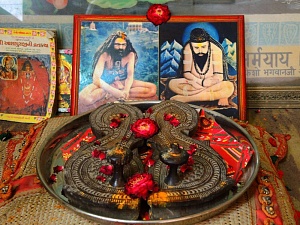News
-
 Pranayama workshop, Mar 1-7
Pranayama workshop, Mar 1-7
-
 21-day Pranayama challenge
21-day Pranayama challenge
-
 Nāda meditation workshop, January 8-12
Nāda meditation workshop, January 8-12
-
 April 3, Navaratri with Yogi Matsyendranath Maharaj, Australia, Queensland
April 3, Navaratri with Yogi Matsyendranath Maharaj, Australia, Queensland
-
 March 17, 2020. Purifiying Pranayama With Yogi Matsyendra Nath
March 17, 2020. Purifiying Pranayama With Yogi Matsyendra Nath
-
 November 2019, Tantra Workshop Series in Argentina
November 2019, Tantra Workshop Series in Argentina
-
 Workshop in Gualeguaychu
Workshop in Gualeguaychu
-
 17-18 November 2018, Yogi Matsyendranath in Źarate (Argentina)
17-18 November 2018, Yogi Matsyendranath in Źarate (Argentina)
-
 15-16 November 2018, Yogi Matsyendranath visit to Uruguay
15-16 November 2018, Yogi Matsyendranath visit to Uruguay
-
 12 Nov 2018, Lecture at USAL (Salvador University)
12 Nov 2018, Lecture at USAL (Salvador University)
-
 10-11 November 2018, Workshops in Quilmes and La Plata (Argentina)
10-11 November 2018, Workshops in Quilmes and La Plata (Argentina)
-
 8 November 2018, Open conference in Necochea (Argentina)
8 November 2018, Open conference in Necochea (Argentina)
-
 2,3,4 November 2018 - Participating in XVI Retreat International of Yoga and Meditation
2,3,4 November 2018 - Participating in XVI Retreat International of Yoga and Meditation
-
 Programme in Québec (Canada) 13-16 June
Programme in Québec (Canada) 13-16 June
-
 Melbourne Book Launch
Melbourne Book Launch
-
 4-years Summer Program
4-years Summer Program
-
 Biography of a Russian Yogi
Biography of a Russian Yogi
-
 November 2017, Visit of Yogi Matsyendranath to Argentina
November 2017, Visit of Yogi Matsyendranath to Argentina
-
 Satsangs of Yogi Matsyendranatha Maharaj in Berlin
Satsangs of Yogi Matsyendranatha Maharaj in Berlin
-
 Seminars and trainings in June-July 2015 (France)
Seminars and trainings in June-July 2015 (France)
Tag cloud
Authorization
Yama and Niyama: brief review
 01.11.2017
01.11.2017
Yama-Niyama are the principles of spiritual life, based on which yogi, practicing spiritual practices, becomes perfect. In other words, Yama-Niyama is the boat in which you are sitting, and spiritual practices are the oars, the motor and the map, which by the grace of Guru lead you in the right direction, thanks to your efforts. Without a boat, you are most likely to be eaten by sharks or will simply drown: the ocean of life consists not only of sunny moments. There are different variations of Yama-Niyama, but they are all alike. Yama is something that should be avoided, Niyama is something to follow and adhere to. Yama-Niyama must be followed in actions, words and thoughts.
Here is the list given by our Guru according to Nath’s texts.
Yamas:
-
Ahimsa (non-violence, non-harming)
-
Satya (truthfulness)
-
Asteya (non-stealing)
-
Aparigraha (non-narcotics)
-
Brahmacharya (chastity, sensual abstinence, especially sexual, control over feelings, following God in everything)
-
Kshama (forgiveness of faults and guilt of others, tolerance)
-
Dhriti (firmness)
-
Daya (compassion to everyone)
-
Arjava (honesty and straightforwardness)
-
Mitahara (moderation in nutrition)
Niyamas:
-
Shaucha (purification of body and mind)
-
Tapas (asceticism)
-
Ishvara-pujana (worship of God)
-
Svadhyaya (systematic study of the sacral scriptures)
-
Santosha (contentment with what one has)
-
Japa (repetition of mantras)
-
Mati (development of mental acuity, deep understanding)
-
Hri (sense of shame and remorse in case of wrong deed)
-
Astikya (faith in Guru, tradition, scriptures)
-
Huta, Homa (offer to the Deity of food, drink, objects valuable to the worshiper)
-
Dana (donation)
-
Siddhanta-Vakya-shravana (hearing about the siddhanta)
It is always necessary to check with Yama-Niyama, because the further you swim, the safer and stronger your boat should be.
Tags: yoga sampradaya nathas
Author: Lakshminath

